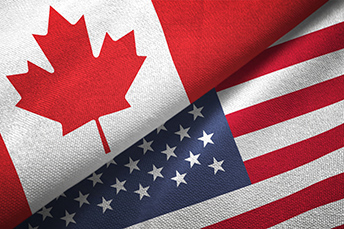You may not know that “pub” is short for Public House. But, it makes sense when you learn that in the early days, a British pub was known not only for drinking beer, but also for socially gathering in the center of town. But most interestingly, the British pub actually started as an Italian wine bar, dating back to the days of an invading Roman army in 43 AD. Something to ponder the next time you drink a pint of Newcastle, perhaps. Another British creation, Barclays, recently became the first large bank to partner with Mastercard for its global real-time business payment system, Track Business Payment Service (BPS). Mastercard’s BPS is still in its initial phase and is expected to take years to fully build out. Yet, this partnership highlights the growing number of players and partners entering the real-time payments field, as consumers and businesses alike expect speed and convenience in digital payments. Before the Barclays partnership, Mastercard’s BPS launched in the US in May 2020, with several third parties facilitating its card payment rail. While not real-time yet, it’s a single platform that “minimizes the need for manual and time-consuming back-and-forth between buyers and suppliers,” according to Mastercard. Yet, it still takes 1-3 days to process. Later this year, Mastercard’s BPS real-time services will become available to Barclaycard Payments customers in the UK and continental Europe. These services use multiple payment rails, and with Barclaycard Payments joining BPS as both a buyer and supplier agent, payment reconciliation for their customers will be greatly streamlined. With this leveraged multi-rail system, Mastercard will be able to more effectively compete with other real-time solutions in the UK and Europe. Here are three reasons why community financial institutions (CFIs) should pay attention to Mastercard’s BPS developments in the US and abroad. 1. Growing need for businessesAccording to a Visa survey from the end of 2020, 82% of SMBs globally had enhanced their operations to accommodate the huge uptick in digital payment demands by consumers. Even after business returns to usual, 74% of SMBs believe consumers will keep using contactless payments, encouraging SMBs to continue providing digital payments.For its part, Barclays’ motivation for joining the platform, as an agent for suppliers and buyers, is based partly on internal research that showed 44% of businesses wanted greater automation in payment processing. Furthermore, 32% of respondents said they wanted the ability to automatically match supplier invoices against purchase orders. To meet this ongoing business need, the real-time payments playing field will only expand. More financial institutions are likely to join Mastercard’s BPS, expanding its influence. In the meantime, PayPal, Venmo, and Zelle provide value for many smaller businesses through the real-time payment provider, The Clearing House (TCH). Then, before long, the Fed’s real-time system, FedNow will be available too. 2. Lucrative opportunities for CFIsThe real-time payments market is on an upward trajectory. In the US, this market is forecasted to reach $4.2B in transaction volume by 2024. That would equate to a compound annual growth rate of 42.1% over the coming 5Ys. Not only is the market growing, but businesses are also willing to pay for real-time payment services. According to another report by Deloitte, 50% of businesses would pay a fee for instant payments. Adding these services to your offerings would not only make your business customers happy, but also increase your income.These types of services are expected to be even more important, as digitalization continues to proliferate and faster and better payment technologies continue to evolve. Providing these solutions for your customers helps them streamline their operations, provide better financial tracking, and help with cash flow management.3. The importance of strategizing The recent announcement underscores B2B payment opportunities, making it more imperative for CFIs to think strategically to support their customers. The small businesses you serve are largely ditching paper checks in favor of B2B payments, so you will need to keep up technologically to continue supporting them. Whatever your businesses want to use — ACH, card rails, real-time payment networks — CFIs need to be ready. If you haven’t already, start planning out where to invest on your own or partner with third parties to meet the ever-changing needs of your customers, before they have the chance to find faster payments elsewhere. PCBB is continuously investing in technologies to streamline payments for our customers, in addition to participating in the FedNow pilot. Feel free to reach out to discuss this payment topic in more depth.

BID® Daily Newsletter
Aug 25, 2021
BID® Daily Newsletter
Aug 25, 2021

Barclays & Mastercard – Latest RTP Developments
Summary:
The US real-time payments market is expected to reach $4.2B in transaction volume by 2024. With this level of growth, more players are entering the field. Barclays recently partnered with Mastercard to launch a real-time payment system in the UK and Europe. This could be important even to community financial institutions in the US.
Subscribe to the BID Daily Newsletter to have it delivered by email daily.
Related Articles:

Real-Time Payments Can Help Soothe Supply Chain Issues
Supply chain issues, lost luggage, and cancelled flights are miseries for consumers who want what they’ve paid for. Faster payment systems can help ease their unhappiness by delivering quicker refunds and compensation.
Supply chain issues, lost luggage, and cancelled flights are miseries for consumers who want what they’ve paid for. Faster payment systems can help ease their unhappiness by delivering quicker refunds and compensation.

$21 Trillion Opportunity In Cross-Border Payments
The cross-border payments market is valued at $21T and is growing at a 90% compound annual growth rate. This is one big reason to consider providing cross-border payments to your business customers. We have four more: small and medium businesses are engaging in more foreign trade, they trust their banks for help, you generate more fee income, and you can strengthen your relationship with your customers.
The cross-border payments market is valued at $21T and is growing at a 90% compound annual growth rate. This is one big reason to consider providing cross-border payments to your business customers. We have four more: small and medium businesses are engaging in more foreign trade, they trust their banks for help, you generate more fee income, and you can strengthen your relationship with your customers.
